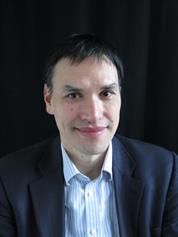The subject of Economics is often treated with suspicion, as one is reminded on hearing the prelude to each and every RSA speakers video - David Attenborough quoting John F. Kennedy's environmental adviser: “Anyone who believes in infinite growth on a physically finite planet is either mad, or an economist …”
At the same time, Economics is often seen as a dominant force, whose insights are for the initiated only, with the rest frozen out of debates on policy. The question still remains though: in gaining a greater understanding of Economics, what is it that makes its insights potentially useful and credible for the general public? The cries for a new paradigm are less vocal than after the 2008 banking crisis, but much discontent remains – as demonstrated by the Brexit vote.
My answer to the challenge of providing credible insights starts by highlighting two important points. First, much of the basic building models of economics do make simplifying and inaccurate assumptions – they ignore such features such as limited physical resources, and overlook the frequent existence of reciprocal and altruistic behaviour among organisations and markets. But, second, economics is often subtler and more relevant when examined in close detail - or at least, the strands of it that are prepared to accept that the choices that individuals make have moral and political repercussions for others and themselves, in the future as well as the present.
A key exponent of such an approach is Amartya Sen, winner of the Nobel Prize in 1998. His account of economic progress in societies (‘Development as Freedom’) sees economics in partnership with other societal agendas. He acclaims the freedom and improvements that follow from actions to buy and sell goods and services that do not harm others. However, Sen sees this freedom as part of a wider set of freedoms – freedom from violence, tyranny, premature ill-health, stunted chances to learn – freedoms that in turn also shape economic activity.
Complementing that perspective is the work of 2009 Nobel Prize winner Elinor Ostrom. A primary focus for her was how the environment and eco-systems interact with and effect economics. Overturning traditional economic theories that argued for government regulation or privatization of the ‘commons’ (natural resources used by many people in common), she showed that lakes and forests could be successfully managed for the long-term by local communities. But, in order to make this workable, she also stressed that there must be supportive arrangements in place, such as clearly defined boundaries, rules that are tailored for the local context, enforceable sanctions against those whose greed puts the eco-system at risk, and processes for reaching collective decisions.
Ostrom’s studies also showed the need for effective monitoring by people who are also accountable for their work and this in turn highlights the problems that can arise when effective monitoring is lacking. George Akerlof, also a Nobel Prize winner, identified that when such knowledge (such as whether a second-hand car is a dangerous rust-bucket or not) is too difficult to gain, that breaks trust among potential buyers, and so eventually breaks the whole market. These effects have been surprisingly crucial in agendas as varied as mortgage-backed securities to the sale of hover-boards.
The fundamental question is whether these insights are enough to answer the scepticism in the question: ‘What’s the use of economics?’
To return to David Attenborough’s challenge, we are, for example, seeing economics-thinking central to solutions to climate change. The Stern Review in 2006 reinvigorated the debate on the ‘greatest and widest ranging market failure ever seen’, and set out a compelling (if in hindsight understated) case for actions to counter the disastrous risks set out in IPCC reports. The United Nations programme on tackling deforestation in developing countries has strengthened the voice of affected populations in decision-making, while increasing the incentives to maintain forests and the transparency on outcomes. The TEEB study (Economics of Ecosystems and Biodiversity) has highlighted the huge cost of biodiversity and ecosystem damage. And the 2015 Paris agreement on climate change has a ‘bottom up’ system of peer pressure, with transparency on countries’ actions on greenhouse gas emissions.
None of this is a magic wand solution. But by identifying when damage occurs to others as a result of one party’s actions (‘externalities’), economics highlights what can be done to prevent or reduce that damage. By showing that ‘capital’ is much more than machinery and land, but also covers eco-systems, natural resources, and social capital, it becomes much clearer what is at stake in achieving prosperity for generations ahead.
Economics is the study of the interplay between limited resources and unlimited human wants, and so potentially has the capability to study carefully what can be achieved on a physically finite planet. Economics is multi-faceted, and within its remit come thinkers that have made it possible to envisage futures that don’t entail despair or fantasy.
Related articles
-
Four ways the RSA is supporting the community banking movement to make an impact
Mark Hall
Mark Hall outlines four key ways in which we are supporting the community banking movement to make an impact.
-
Raising productivity benefits the whole of society. But how can Fellows help?
Rory Campbell FRSA
Can you lend your time, insights, experience and skills to help bring out the potential of an ambitious business leader, through joining a mentoring programme?
-
The EU Needs a New Grand Strategy And Britain Is Needed
Jukka Aminoff
In the first of a two-part series on the UK's departure from the EU, Jukka Aminoff discusses the need for a new 'grand strategy'.



Be the first to write a comment
Comments
Please login to post a comment or reply
Don't have an account? Click here to register.